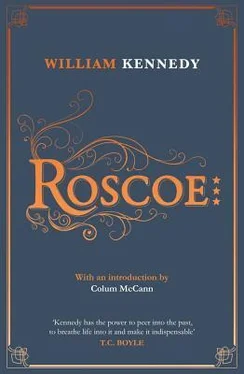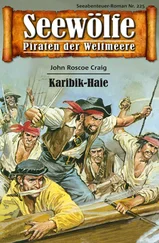“A martyr to the caprice of automobile travel,” Roscoe said.
Edward Brodie began his newspaper work as a reporter on the Sentinel, and later, after Patsy had forced the paper to close, moved to the Times-Union and enshrined himself on Patsy’s high altar by rebutting a federal report that Albany, an incorrigible city of speakeasies, was also one of the most openly sinful cities in the nation, abounding in bawdy houses and streetwalkers. Brodie conducted a survey of civic and city agencies, plus man-in-the-street interviews for his article, and found that in ten years no one had complained of any vice. One arrest had been made for procuring in 1928, along with four transient women convicted of prostitution, jailed, then exiled forever from the city by police. Men on the street told Brodie: “Albany is a clean town. Albany is nowhere near as bad as they say.” Three weeks after his story appeared, Brodie was appointed Albany’s commissioner of charities and communication, writing speeches for every politician Patsy allowed to make one. Roscoe called him the Oracle.
“Cutie, I heard you say you wanted to talk to me,” Roscoe said.
“Since you’re the opposition in this election, Roscoe,” Cutie said, “I wanted to warn you we’re organizing heavy attacks. I plan to campaign as Uncle Sam, in a suit of stars and stripes, a beard, and a tall hat, and I will put you and Mayor Fitzgibbon on notice that I mean what I say about good government.”
“Will Uncle Sam make speeches?” Roscoe asked Brodie.
“He will,” said Brodie. “He will insist on lowering the price of meat, for, as you know, Uncle Sam was a butcher in the War of 1812. He will stump for the right of soldiers to get out of the army now that the war is over, and he will demand more shade trees be planted downtown. Uncle Sam will also sing ‘God Bless America’ at the close of every rally.”
“Sounds like this’ll be our toughest fight ever,” Roscoe said.
“Watch out for me, Roscoe,” said Cutie.
Mac came through the open door in hat and shirtsleeves and nodded at Roscoe as he approached. He only looked at Georgie, Brodie, and Cutie, then back to Roscoe.
“Beer, Mac?” Georgie asked, pushing Roscoe’s beer across the bar.
“Vichy water,” Mac said. He didn’t drink anymore, except a little port now and then with Gladys.
Georgie poured Mac’s Saratoga Vichy on ice. As Roscoe paid for a round, picked up his beer, and started back to his corner, a sparrow flew through the door and panicked, soaring the length of the bar and back, corner to corner, lost, trapped.
“Jesus, Mary, and Joseph,” said a lone middle-aged woman at the end of the bar, a martini in front of her. Roscoe knew her, but not by name: a reporter who covered the Capitol for downstate newspapers. She rummaged in her purse, pulled out a rosary, and waved it at the sparrow, which was still soaring frantically from wall to wall. “It’s bad luck when a bird flies inside the house,” she said, and raised her arm higher to swing the rosary like a lariat.
“He’s just getting out of the sun,” Brodie said. “Buy him a beer, Georgie.”
“You’re right that birds are bad luck inside a house,” Roscoe said, “but never in a saloon.” He watched the crazed bird, which hovered, then changed direction, in quick and aimless flight. Georgie flapped a bar towel at the bird, intensifying its panic.
“Don’t hurt it,” the woman said. “That’s worse.”
“Just waving it toward the door, dear,” Georgie said. “First time we ever had a bird in here.”
“Who you kidding?” Roscoe said. “This place caters to cuckoos.”
Back and forth went the bird.
“Now, everybody calm down,” Roscoe said. “Sit perfectly still and just shut up. Don’t make him more nervous than he already is. Quiet.”
No one moved or spoke. They all watched the bird fly back and forth, back and forth. As the bar fell unnaturally silent and still, the bird perched on a hanging light fixture. It twitched its wings, looked up, down, sideways. Then, with coordinates under control, it zoomed straight down from the fixture and out through the open door. The woman kissed her rosary and put it back in her purse.
“Thank you, sir,” she said to Roscoe. “You understand birds.”
“I know what it’s like when you’re in the wrong place,” Roscoe said.
“So,” Roscoe said to Mac, “tell me about the chicken war.” They were alone in Roscoe’s corner.
In a whisper Mac answered: “Patsy wants to bust the Notchery, with Bindy in it. He wants Bindy in jail.”
“He can’t want that. That’s insane. Where did you get this?”
“O.B. got it from Patsy last night and gave it to me this morning. It’s my baby.”
Roscoe had talked with Patsy and O.B. both at morning and Bindy was never mentioned. So, Roscoe, Patsy doesn’t trust you on this. He’s afraid you’ll find a way to stop the raid before it happens; and O.B. joins him in a second brotherly conspiracy.
“You’re organizing the bust? O.B.’s not going in with you?”
“He’ll be on the outside, but that’s fine,” Mac said. “I wanted a second opinion before I made the move. You’re the only second opinion in town.”
“How do you even know Bindy’ll be at the Notchery?”
“We saw him go in this morning and he didn’t come out.”
“You still have that prowl car out front?”
“Gone. Let him think we left. But we’re watching from two houses.”
“Don’t you think he knows that?”
“He might.”
“You move in with your troops, knock down the door, back up the wagons, and haul off Bindy, Mame, the lot.”
“Right.”
“Who’s in there?”
“Pina, anywhere from three to eight girls, the maids, and Mame’s bouncer and bartender. Plus Bindy, and maybe some customers.”
“You get to bust Pina.”
“Would you believe.”
“But you can’t do it. That’s why you’re here.”
“I can do it,” Mac said. “Mac does what he’s told. But Patsy and Bindy been going at each other like this for as long as I know them. They fight and then patch it up. If that happens after I bust Bindy, where the hell am I?”
“Very astute, Mac. When is this happening?”
“Tonight.”
“What if Bindy’s not there when you break down the door?”
“I don’t know. Buy Mame a new door?”
“Can you imagine how happy the Governor will be over this? And what it’ll do to Alex’s campaign?”
“I’m only a lieutenant, Roscoe. I got an order I gotta go with. Unless you know how to stop it.”
“I’ll go up there with you now. We’ll have a cup of tea with Bindy, talk things out. How’s that sound?”
“Cup of tea.”
“Bindy likes his cup of tea. Four and a half teaspoons of sugar.”
“Something you oughta know, Roscoe,” Mac said, and he leaned closer, spoke in the softest possible whisper. “Pina did the Dutchman. Her prints were all over his room. O.B. and Patsy know this, but nobody else.”
“Nobody except you, now me, the fingerprint boys, Pina herself, who told Mame, who told Bindy, and by this time every whore in town knows.”
“The troopers don’t know about the prints. The FBI don’t.”
“Let’s hope that’s true,” Roscoe said, standing up, once again readying his backbone for a move into the hideous maw of subsequence. Dutiful Ros, should be elsewhere, he’s still here. And the blue devils are running loose.
Mac, Who Was Once a Child
In 1914, Jeremiah McEvoy’s father left his wife with five kids in their rotten house in Sheridan Hollow. Mac was eight and went to work at Bensinger’s Steam Laundry. Heat, stink, lifting, hauling, fourteen hours, buck fifty a week. He came thirty minutes late one day, they docked him fifty cents. Mac broke two plate-glass windows, spread ashes on two rooms of clean laundry. Mrs. Bensinger shoved two dollars at him, saying, “Leave us alone.” Mac danced on the street for nickels and pennies, got a fiver from Jimmy Walker, the assemblyman, which gave him lifelong affection for politicians. When he was ten, the city took all five McEvoy kids from Mac’s mother, too sick. She moved in with her sister, who had a house. Mac, too old for the orphan asylum, went on the job auction block. This farmer looked at his teeth, no rot there, made him walk and pick up a chair, told him, “Get in the wagon,” and they rode eight miles to one hundred and eighty chickens.
Читать дальше












